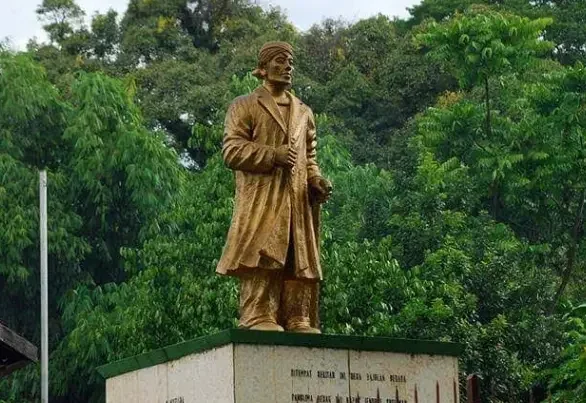About Semarang – Nganjuk Regency, one of the regions rich in history in East Java, has an interesting story about the origin of its name.
According to folklore that is still alive among local residents, the name Nganjuk originally came from a small village that is now known as the village of Decree, where the Lor Temple was founded.
In the past, the village was named Nganjuk Village, derived from the word “Anjuk”. However, along with the times and the increasingly wide use of the name Nganjuk for a larger region, the name of the village was later changed to bear.
Quoted from jawatimuran.disperpusip.jatimprov.go.id, the word “dependents” itself comes from the Javanese language “confusion” which means “mertanggung” or “responsibility”.
This term symbolizes that the name Nganjuk is considered to have been “responsible” or too big for a small village so that the name is diverted into a wider regional name.
Prof. Dr. JG De Casparis, a historian, explains the meaning of the word Anjuk Field in detail. The word “Anjuk” means a high place or symbolically symbolizes a brilliant victory.
Whereas “fields” means land or land. Thus, the term Anjuk Ladang literally can be interpreted as a “high place” which is a symbol of victory and glory.
The name Nganjuk is taken from the field of the fields because the area has a large historical value. Especially in connection with the heroism of the soldiers under the leadership of Public Works Sindok, who succeeded in conquering the army from the Kingdom of Srivijaya.
This success is a historical milestone that captures the name Nganjuk as a symbol of victory and glory which is then used to name a wider area, namely the Nganjuk Regency that we know today.
In addition to historical background, the change in the word Anjuk to Nganjuk can be explained from the standpoint of linguistic development, especially Javanese.
These changes are part of typical and structural Javanese morphology. This process involves several factors, including:
- Symptoms of old age (time): Changes in words that occur over time.
- Symptoms of information: words that experience simplification or modification in daily use.
- The addition of “ng” consonant at the beginning of the word is vocals.
Other examples of this change include:
- Aliman’s woman happened
- Kudus Amarta
- Asem becomes ngasem
- Astina’s statement
- Awi became Ngawi
- Tips Tip
- The latest drink
With this pattern, it is clear that Nganjuk is a form of change from the word Anjuk, referring to a place that means victory and glory.
History and linguistics show that the name Nganjuk is not just a regional name, but a symbol of glory and victory inherited from the past.
From a small village that was once named Anjuk, now a historic Nganjuk Regency and rich in culture and tradition. Changes in names that occur reflect the dynamics of social and language that are typical in Javanese society.
For the people of Nganjuk itself, this story is a matter of pride and is an important part of the local cultural identity that must continue to be preserved. ***
News
Berita
News Flash
Blog
Technology
Sports
Sport
Football
Tips
Finance
Berita Terkini
Berita Terbaru
Berita Kekinian
News
Berita Terkini
Olahraga
Pasang Internet Myrepublic
Jasa Import China
Jasa Import Door to Door
